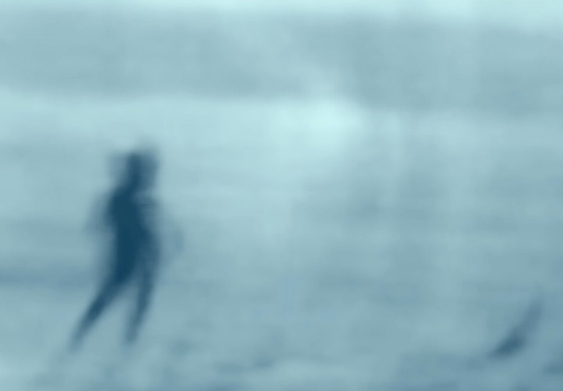Silent abstract short film Metaqua (1:10s). Selected out of over 400 entries to celebrate the opening of the new BBC Worldwide HQ premises in London. Winner of the Arts Thread Creative Challenge 2014 (moving image category).
Film concept
Instead of predicting how technology may develop in the future, the concept was inspired by contemporary philosopher Catherine Malabou and specifically her notion of human perception carrying the characteristics of elasticity and lucidity. In a fictitious world METAQUA (beyond water) water is the new medium for communication, a metaphor for visual communication: water can be touched (watching TV, like touching an iPad); water can be pure or filtered (this represents various kinds of information and contents); water has a cycle, from a drop to a river to an ocean (as the individual experience of watching a programme can be shared by millions). This film envisages the future ‘television’ landscape experience.
Interview with Arts Thread, 2015
Written by Biju Belinky
"With her work now on show at the BBC Worldwide television centre in London, we talked to Neringa on the film’s aesthetic, inspiration and what she wants people to take from it.
ARTS THREAD: Tell me about your inspirations.
Neringa: The brief was about imagining the future of television, so I was working on a project where I speculated if water was the new medium for visual communication, as if you literally touched the water to view content and get messages. When you see the water and the kid walking by the coast, that’s really a metaphor for me, because you know, kids build castles of sand and they have dreams and suddenly the sea water comes in and plays with it or destroys it. So it’s quite an abstract film, but it’s a metaphor for future visual communication.
AT: How did you decide on the aesthetic of the film?
N: It’s a mixture of things. The video footage came from the actual installation live project, but also I took the still images, the photographs, to use afterwards as well. And I think a bit of the playfulness, it’s a bit of what Oskar Fischinger did in early 20th century. The first animation experiments with just pixels and squares, and I thought since we are looking at what visual communication could be like in the future, I thought it would be quite nice to see, to make the screen smaller, almost to resize it to a pixel size, and to see what kind of new dimension you get.
AT: And what’s your favourite BBC program?
N: Oh I don’t know! I used to watch quite a few travel programmes when I was younger, but I’m not very familiar with a lot of it because I’m from Lithuania. We’re somewhat behind in that sense because we didn’t have any of that content when I was growing up. But it’s exciting. The Wizard of Oz only came out a little bit ago. That’s just how it is. But you know, they don’t know the films we used to watch here. The good thing is that we can see archive footage that are available to the public, and obviously a lot of screens in the buildings.
AT: How does it feel to see your work here?
N: It’s great! I’m glad it’s being shown and people have stopped to watch it a few times. It’s exciting to see your own work on screen anyway. When you make it you don’t think about it.
AT: Is there anything in particular you want people to take away from it or is it more of a personal experience?
N: I think it’s both. I think it’s my personal experience that I hope is transmitted in this very immersive video, but obviously it’s very short and very small. I hope people just pause a little and look at reality a different way. To not just go with the flow but try things differently and be more creative and do what you can as an individual, even if it is the smallest thing."
Further reading
Twitter
Interview available on Arts Thread
Video available on Vimeo
